Most of the time, the Thames is the closest I get to a horizon. I'm entranced by the river: it's history - flowing through London for 2000 odd years. Staring at the murky sluggish waters I feel that history resonating within me: I feel connected to... I'm not sure what. It feels permanent. Peace. Unlike the slew of toy town "luxury" apartments that have colonised it's banks, inhabited by the battery people, thinking their ikea furniture and laminate flooring is just dandy.
I like the working/derelict stretches: scarred, overgrown, decayed, abandoned. Especially from Greenwich to the Millenium dome. A place that hasn't been framed by some authority as an area of outstanding beauty. Once, at nightfall I took a friend out onto a pier for an urban picnic. I ate a cold pie, and slugged back a few ales and watched the gasworks burning off excess gas, listened to the river sucking at the ancient wooden posts and rubbing barges up against the wharf, groaning occasionally. And watched Canary Wharf opposite light up across the water, looking from one world onto another. He sat swaddled in his coat letting me know just how miserable he was.
Anyway, today I walked that stretch, and here are a few images. Also below I quote Joseph Conrad's Heart of Darkness.
And I like that entrance means a point of entry, and to carry away in rapture.
Forthwith a change came over the waters, and the serenity became less brilliant but more profound. The old river in its broad reach rested unruffled at the decline of day, after ages of good service done to the race that peopled its banks, spread out in the tranquil dignity of a waterway leading to the uttermost ends of the earth. We looked at the venerable stream not in the vivid flush of a short day that comes and departs for ever, but in the august light of abiding memories. And indeed nothing is easier for a man who has, as the phrase goes, "followed the sea" with reverence and affection, that to evoke the great spirit of the past upon the lower reaches of the Thames. The tidal current runs to and fro in its unceasing service, crowded with memories of men and ships it had borne to the rest of home or to the battles of the sea.
[...]
The sun set; the dusk fell on the stream, and lights began to appear along the shore. The Chapman light-house, a three-legged thing erect on a mud-flat, shone strongly. Lights of ships moved in the fairway -- a great stir of lights going up and going down. And farther west on the upper reaches the place of the monstrous town was still marked ominously on the sky, a brooding gloom in sunshine, a lurid glare under the stars.
"And this also," said Marlow suddenly, "has been one of the dark places of the earth."
[...]
"I was thinking of very old times, when the Romans first came here, nineteen hundred years ago -- the other day. . . . Light came out of this river since -- you say Knights? Yes; but it is like a running blaze on a plain, like a flash of lightning in the clouds. We live in the flicker -- may it last as long as the old earth keeps rolling! But darkness was here yesterday. Imagine the feelings of a commander of a fine -- what d'ye call 'em? -- trireme in the Mediterranean, ordered suddenly to the north; run overland across the Gauls in a hurry; put in charge of one of these craft the legionaries -- a wonderful lot of handy men they must have been, too -- used to build, apparently by the hundred, in a month or two, if we may believe what we read. Imagine him here -- the very end of the world, a sea the colour of lead, a sky the colour of smoke, a kind of ship about as rigid as a concertina -- and going up this river with stores, or orders, or what you like. Sand-banks, marshes, forests, savages, -- precious little to eat fit for a civilized man, nothing but Thames water to drink. No Falernian wine here, no going ashore. Here and there a military camp lost in a wilderness, like a needle in a bundle of hay -- cold, fog, tempests, disease, exile, and death -- death skulking in the air, in the water, in the bush. They must have been dying like flies here. Oh, yes -- he did it. Did it very well, too, no doubt, and without thinking much about it either, except afterwards to brag of what he had gone through in his time, perhaps. They were men enough to face the darkness. And perhaps he was cheered by keeping his eye on a chance of promotion to the fleet at Ravenna by and by, if he had good friends in Rome and survived the awful climate. Or think of a decent young citizen in a toga -- perhaps too much dice, you know -- coming out here in the train of some prefect, or tax-gatherer, or trader even, to mend his fortunes. Land in a swamp, march through the woods, and in some inland post feel the savagery, the utter savagery, had closed round him -- all that mysterious life of the wilderness that stirs in the forest, in the jungles, in the hearts of wild men. There's no initiation either into such mysteries. He has to live in the midst of the incomprehensible, which is also detestable. And it has a fascination, too, that goes to work upon him. The fascination of the abomination -- you know, imagine the growing regrets, the longing to escape, the powerless disgust, the surrender, the hate."
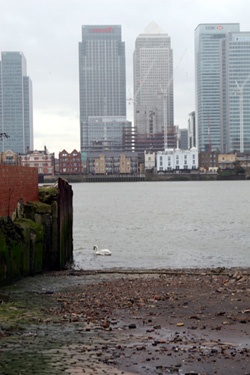
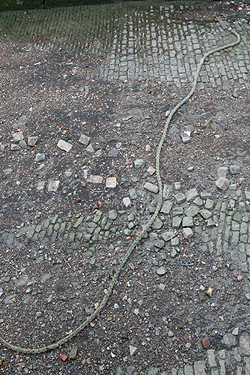
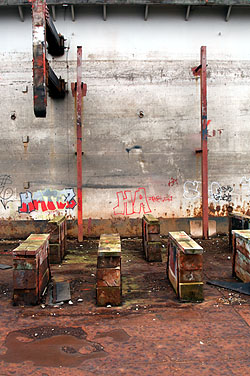
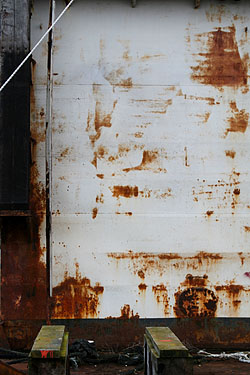
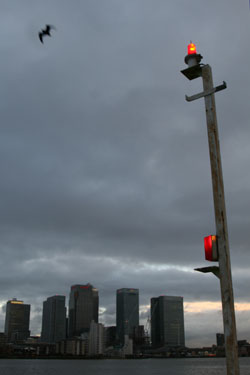

No comments:
Post a Comment